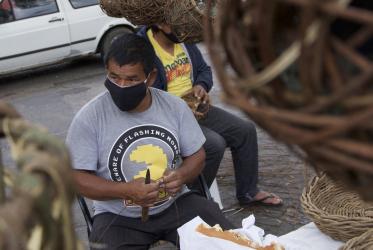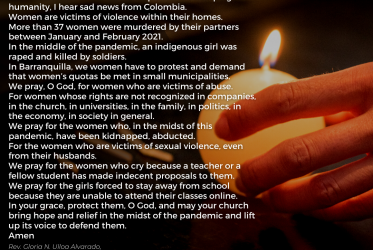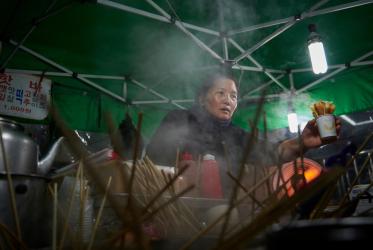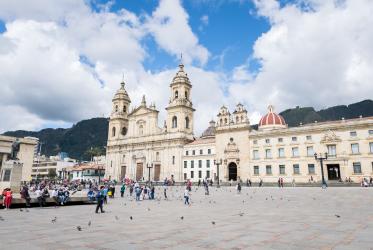Displaying 21 - 40 of 98
COVID-19 in conflict zones: “a crisis within another crisis”
27 November 2020
“Conflict Zones and Covid-19” webinar
26 November 2020
A visionary missionary heads home
25 March 2020
WCC publishes two new Bible studies penned by authors from Colombia
24 February 2020
Regional Webinar on Racial Justice - South and Central America, and Spanish-Speaking Caribbean
28 October 2019
On line
Ecumenical young trailblazers
15 August 2019














